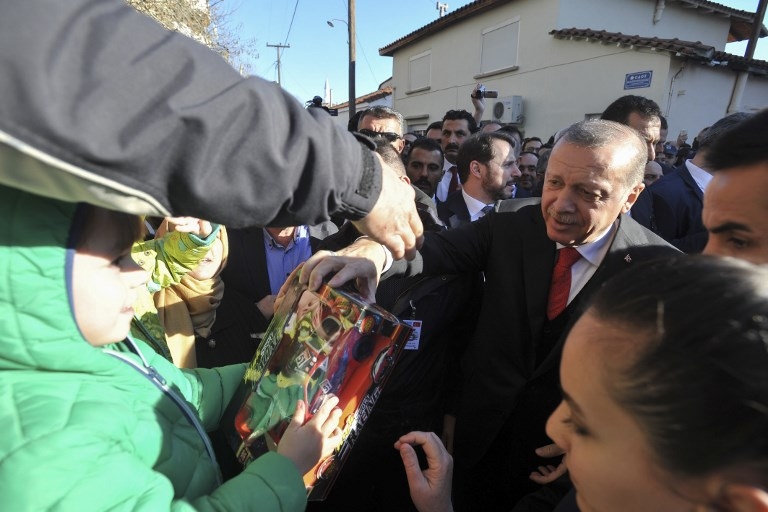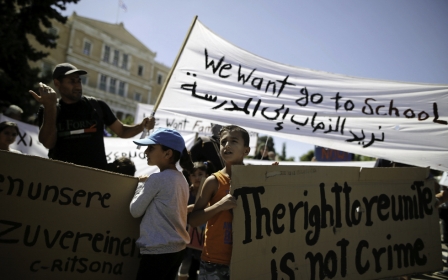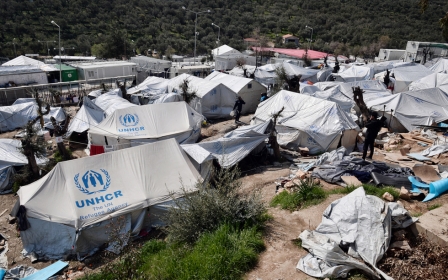Turkey agrees to accept migrant returns from Greek mainland: Report

Greece has persuaded Turkey to accept migrant returns from the mainland in order to reduce critical overcrowding in its refugee camps, a report said on Saturday.
The Kathimerini daily said the agreement came during a strained two-day state visit by Turkish President Recep Tayyip Erdogan this week, during which he angered his hosts with talk of revising borders and complained about Greece's treatment of its Muslim minority.
The deal is in addition to Turkey's existing agreement to take back migrants from Aegean island camps, under the terms of an EU-Turkey pact.
Greek Prime Minister Alexis Tsipras's office did not respond to AFP requests for comment on the report.
But a Greek government source on Friday said Athens and Ankara had agreed "new measures of cooperation towards decongesting the islands, under the terms of the EU-Turkey pact."
No further details were given.
During his visit – the first visit of a Turkish president to Greece in 65 years – Erdogan told local Turks in the Greek city of Komotini that solidarity between two countries should be improved, Turkish newspaper Hurriyet reported.
Greece’s Western Thrace region, where Komotini is located, is home to a Turkish minority of about 150,000 people.
It is unclear how Brussels will react to the move, Kathimerini said.
Criticised by rights groups, the EU-Turkey pact was designed to encourage Ankara to stem refugee flows.
Under that controversial deal, Ankara pledged to take back illegal migrants landing in the Greek islands in exchange for financial aid, eased EU visa rules for Turkish citizens, and limited direct resettlement of Syrian refugees living in Turkey.
Migrant returns slow
The pact sharply reduced the number of migrants trying to cross the Aegean Sea to reach Greek islands, although Ankara has repeatedly threatened to walk away from the deal, including over the failure to fulfil the pledge on visa-free travel.
Greece has found that the pace of migrant returns to Turkey fell dramatically after a state crackdown on civil servants that followed an attempted coup against Erdogan last year.
The slow pace of transfers - delayed by arduous background checks on asylum-seekers - has pushed Greek island camps to breaking point.
On the islands of Lesbos, Chios, Samos, Kos and Leros where there are over 15,000 refugees and migrants, camps are filled to triple their capacity, forcing many to sleep in tents.
Efforts to further expand the camps have run into strong local protests, the ministry adds.
More than 3,500 persons were transferred to the mainland between October and November, the migration ministry said.
Aid groups have warned that transferring refugees to heated accommodation before temperatures drop is a matter of life and death.
Middle East Eye propose une couverture et une analyse indépendantes et incomparables du Moyen-Orient, de l’Afrique du Nord et d’autres régions du monde. Pour en savoir plus sur la reprise de ce contenu et les frais qui s’appliquent, veuillez remplir ce formulaire [en anglais]. Pour en savoir plus sur MEE, cliquez ici [en anglais].




